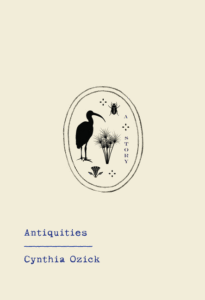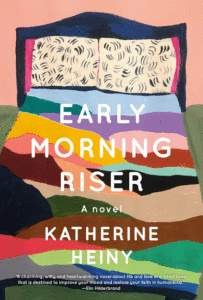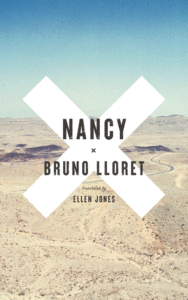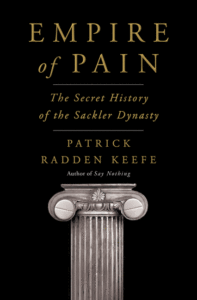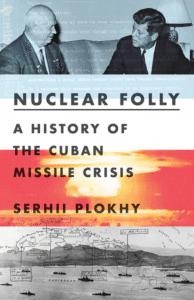Here are the best reviewed books of the week.
Patrick Radden Keefe’s Empire of Pain, Elizabeth McCracken’s The Souvenir Museum, Cynthia Ozick’s Antiquities, and Caleb Azumah Nelson’s Open Water all feature among the Best Reviewed Books of the Week.
Brought to you by Book Marks, Lit Hub’s “Rotten Tomatoes for books.”
1. Open Water by Caleb Azumah Nelson
(Grove)
7 Rave • 1 Positive • 2 Mixed
“As a piece of work that seeks to make clear the experiences of a young black man in contemporary London, the culture of ingrained and pervasive racism that he endures on a daily basis, Open Water is a resounding success. There are many moving and insightful passages that relay with devastating accuracy on how systemic violence negatively affects the life of Azumah Nelson’s protagonist and the relationship he tries to build with a new girlfriend over the course of the novel … For all its important messages, however, Open Water falters somewhat on fictional merit. Azumah Nelson’s use of the second-person voice gets the reader close to the experience of his character but the style is less than seamless, which sometimes holds up his narrative. Stylistically, the book is also problematic. The lyricism of the prose and the use of rhetorical devices are more suited to poetry or polemic than to fiction … The biggest issue with Open Water is that it is too short on action for a novel. Most of the book sees the character reflecting in his head. It is a shame, as the small number of given scenes work really well to open up the book and let the reader dive into water along with the characters. Azumah Nelson is clearly a talented writer who may need further time to perfect the form. In the meantime, we have a worthy book, one that is both political and personal, that speaks its important message out to the world.”
–Sarah Gilmartin (The Irish Times)
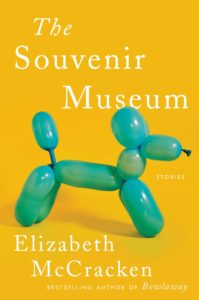
2. The Souvenir Museum by Elizabeth McCracken
(Ecco)
6 Rave • 2 Positive
“Elizabeth McCracken’s The Souvenir Museum begins with one of the funniest short stories I’ve read in a long time … I had to stop reading ‘The Irish Wedding’ several times to explain to my husband why I was laughing so hard. I kept thinking: I wish I were reading a whole book about these people … they’re all beguiling … This tale, like much of McCracken’s work, captures the mixed bag that characterizes most people’s lives … McCracken’s writing is never dull. She ends this fantastic collection with a second English wedding and its aftermath, nearly 20 years after the first, delivering happiness tempered by sobering circumstances—and a satisfying symmetry.”
–Heller McAlpin (NPR)
3. Antiquities by Cynthia Ozick
(Knopf)
5 Rave • 2 Positive • 1 Mixed
“Ozick has been a fervent critic of identity politics since the nineteen-seventies … and yet few have written so well about the inconstant self-esteem of the socially marginalized … A brisk work of some thirty thousand words, it explores her favorite subjects—envy and ambition, the moral peril of idolatry—in her favorite form. As you might expect, it also has much to say about last things, and the long perspectives open to the human mind as it approaches its terminus … It’s here, around the halfway point, that Ozick begins to move through the gears of her formidable imagination, introducing a tincture of magic to what has so far been a piece of fairly standard realism … Ozick’s book about a man ensnared by history is at once a warning against the hazards of nostalgia and an invitation to take a longer view of how we got to where we are. Transfixed by the unfolding spectacle of current events, the modern reader is apt to miss her richest and most subtle suggestion: that we have made an idol of the present.”
–Giles Harvey (The New Yorker)
4. Early Morning Riser by Katherine Heiny
(Knopf)
4 Rave • 3 Positive
“It’s easy to adore the characters Heiny conjures in her novels and short stories. They tend to be quirky and smart, caring and passionate. Jane, the protagonist of Heiny’s gentle, funny new novel, is no exception … Both Jane, ever hopeful, and Duncan, ever appreciative, are pure charm … Told episodically in chapters titled by year and covering a span of 17 years, Heiny’s book finds beauty and humor in connection and community, family and friendship, and the way love can develop and deepen over time … A heartwarming novel with a small-town vibe that sparkles like wine sipped with friends under backyard fairy lights.”
5. Nancy by Bruno Lloret
(Two Lines Press)
4 Rave • 2 Positive
Read Bruno Lloret’s list of Latin American novels that changed how we think about fiction here
“… lovely yet tragic … Lloret’s novel is obviously bleak beyond measure, but it’s also quite beautiful thanks to his self-assured and ethereal prose … Lloret employs unusual typography, punctuating the book with a series of bold X’s; the effect is jarring but powerful, reminding the reader of Nancy’s impending fate. This is a gorgeous novel from a writer unafraid to consider the darkness; it’s hard to read but beyond rewarding … Bleak, beautiful, and incredibly powerful.”
**
1. Empire of Pain: The Secret History of the Sackler Dynasty by Patrick Radden Keefe
(Doubleday)
7 Rave • 2 Positive
“Written with novelistic family-dynasty and family-dynamic sweep, Empire of Pain is a pharmaceutical Forsythe Saga,a book that in its way is addictive, with a page-turning forward momentum. We see the Sacklers moving from marketing to entrepreneurship to art collecting to philanthropy to ignominy. It is an American story, and an American tragedy—and travesty … thanks in large part to Keefe, the anonymity of the principals behind OxyContin not only is shattered, the fog that has shrouded the entire sad episode also has been stripped away.”
–David M. Shribman (The Boston Globe)
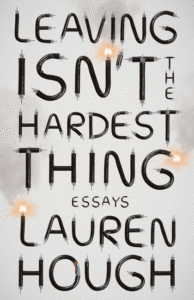
2. Leaving Isn’t the Hardest Thing by Lauren Hough
(Vintage)
6 Rave • 1 Positive
“Oh, does Lauren Hough have a story to tell … These essays are funny, profane and deceptively loose, as if Hough is talking to you late at night in a quiet bar. But they’re also well crafted and make unexpected connections … Hough’s writing is about voice, and her distinctive style is what carries the reader through. By the collection’s end, you feel you know her, and you know she’s finding her own way through writing. Hough is a writer to watch.”
–Sarah McCraw Crow (BookPage)
3. The Bookseller of Florence: The Story of the Manuscripts That Illuminated the Renaissance by Ross King
(Atlantic Monthly Press)
3 Rave • 6 Positive
Read an excerpt from The Bookseller of Florence here
“…if you want to celebrate the place that bookmaking and bookselling still have in our lives, notwithstanding all those hours captive to the digital glimmer, you could do a lot worse than immerse yourself in Ross King’s rich history of Vespasiano da Bisticci … the real pleasure of King’s book is its detailed evocation of the physical grind of bookmaking … King rightly resists any simplified chronology of the transition inaugurated by the arrival of print from the German north that prompted scribes to lay down their quills … The Bookseller of Florence doesn’t pretend to wade into debates in the sociology of culture … What you will find in abundance here is a historical celebration of the Greek humanist Cardinal Bessarion’s belief that books ‘live, they converse and speak with us, they teach us, educate us, console us.’”
–Simon Schama (The New York Times Book Review)
4. Nuclear Folly: A History of the Cuban Missile Crisis by Serhii Plokhy
(W. W. Norton & Company)
5 Rave • 2 Positive
“While the Cuban missile crisis and its resolution have been well documented in the six decades since the incident, a raft of new information has come to light, including firsthand accounts and unclassified documents, particularly from the Russian side since the dissolution of the Soviet Union. Historian Plokhy makes good use of this new information to paint a clearer picture of the behind-the-scenes machinations, the motivations, the politics, and the errors in judgment that almost brought about a nuclear holocaust. Plokhy pulls it all together with sober yet accessible prose that reads like a suspenseful thriller. For anyone interested in the Cold War, this is an indispensable read.”
–Gary Day (Booklist)
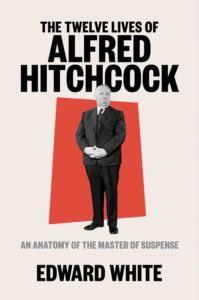
5. The Twelve Lives of Alfred Hitchcock: An Anatomy of the Master of Suspense by Edward White
(W. W. Norton & Company)
2 Rave • 7 Positive
“It’s said that more books have been written about Hitchcock than any other filmmaker. Edward White’s sleek and modest The Twelve Lives of Alfred Hitchcock does not offer grand revelation but a provocative new way of thinking about biography … Strangely, through these refractions, we receive a smoother, more cohesive sense of a man so adept at toying with his audience, on and off the screen … White’s style is unadorned and unobtrusive; only occasionally does he allow himself a little turn of phrase…The psychologizing is of a delicate sort—far from Hitchcock’s own ham-handed attempts, which his own characters seemed to mock … White never forces an explanation or coherence. The radial structure vibrates, like Hitchcock’s best films, with intuition and mystery.”
–Parul Sehgal (The New York Times)





